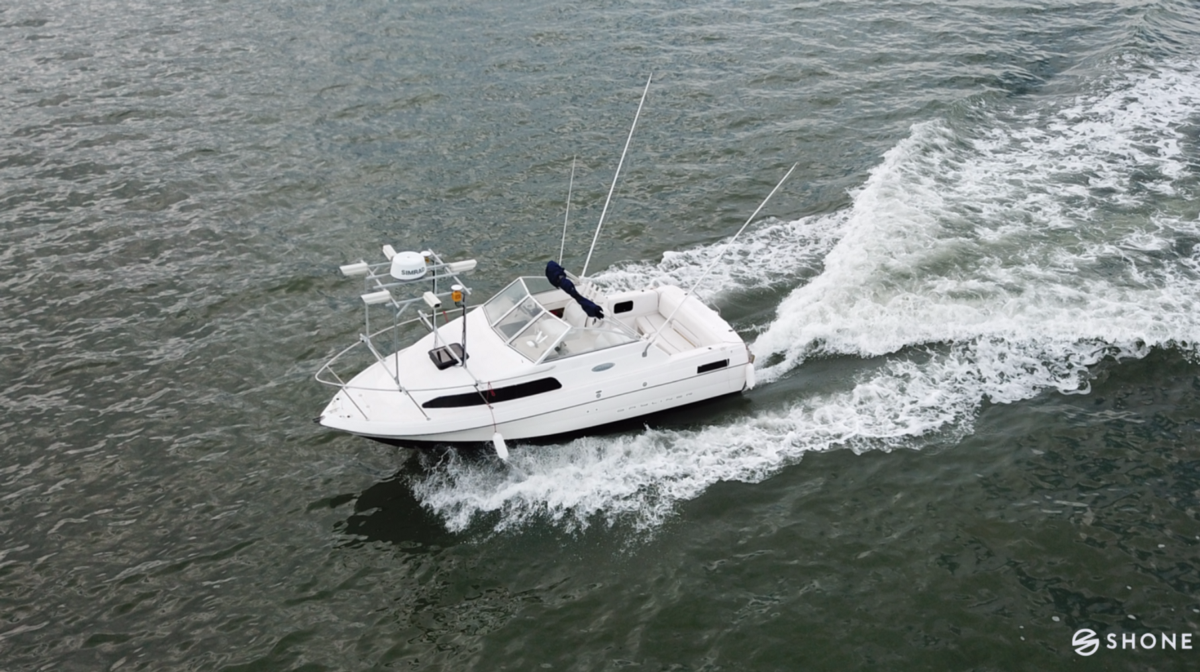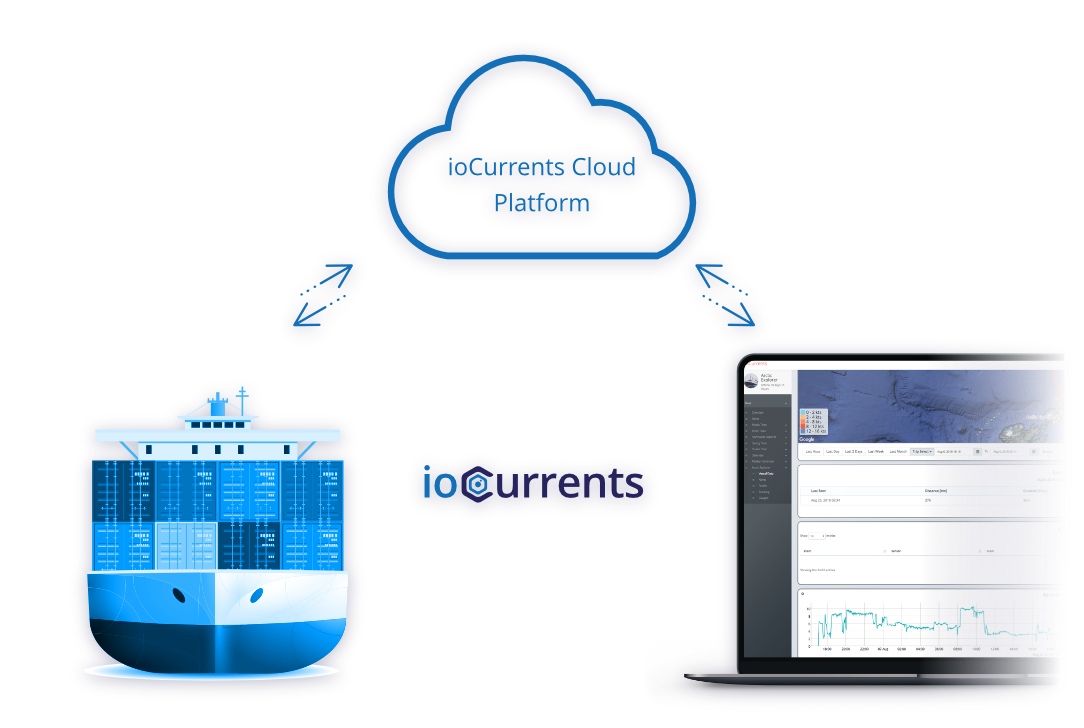Looking back over the last few years of investment in maritime start-ups, investors have put their faith in innovations focused on sustainability and digitalisation.
A quick study of the factors surrounding this focus suggests the reason is twofold. For the most part, digitalisation enhances existing technologies rather than replacing them, meaning that the risks of investment are somewhat lower. As to sustainability, new environmental regulations on the horizon make environmentally friendly investment a safe bet, if not a good investment in the future.
A quick look at the top 10 shipping start-ups on crunchbase.com shows an undeniable trend towards Blockchain - which is perhaps more accessible and has lower investment cost and risk than, say unmanned shipping.
While many inside, and outside, the maritime industry are touting the revolutionising of shipping through unmanned vessels, challenges include cost, reliability of technology, and the changes to laws and regulations which would need to happen before this becomes a reality. Some examples of unmanned vessels are in pilot stages within private operations, but adoption and implementation on a global, and commercial, scale is a long way off.
Two years ago, we spoke to six maritime starts-ups “changing the game” in the maritime industry.
Here are 3 maritime start-ups making waves in the maritime industry today.
Shone
Not all start-ups have a rags-to-riches tale, but Shone perhaps has the makings of a quintessential Silicon Valley story. Here’s how that story came together.
Three friends (Ugo Vollmer, Clement Renault and Antoine de Maleprade) used their skills in autonomous vehicle and robotics to hack a radio-controlled boat they had bought one weekend.
 The 7-meter-long boat Shone would later use to bootstrap and prototype their idea.
The 7-meter-long boat Shone would later use to bootstrap and prototype their idea.
After a lightbulb moment, the idea for Shone is formed in 2017 - a start-up focussed on autonomous shipping. A little over a year later, and after cold calling one of the world's largest cargo shipping companies, they landed a preliminary deal with CMA CGM.
“CMA CGM has built its success on strong entrepreneurial values and constant innovations. That is why we decided to allow the Shone team to board some of our ships to develop their ideas and their potential.” - Jean-Baptiste Boutillier, deputy vice president at CMA CGM
The San Francisco company aims to modernize shipping by bringing autonomous cargo ships to market, making the "ocean safer and friendlier."
"Autonomous doesn't mean unmanned" - Shone
In a nutshell, Shone retrofits manned ships with autonomous technologies. These technologies improve the safety, security and quality of life of the men and women who sail the seas every day,
Shone's detection algorithm analyses the ship's surroundings and predicts the behaviour of the other vessels around. The data is gathered from sensors, AIS, radar, GPS, and cameras fitted on board before being processed to create a picture of the potential hazards - helping the vessel safely and efficiently navigate its surroundings.
Shone's position and focus has them in a good position as far as shipowners and operators sit. One of the key messages on Shone's site is, "Autonomous doesn't mean unmanned". In a blog post, Shone co-founder, Clement Renault, notes that "we believe that humans are extremely valuable and talented. That’s the reason why we care a lot about providing the crews with great technology that makes their lives easier and helps them accomplish more."
Shone's founders believe their focus on improving operational efficiency and reduction of accidents is a far more viable solution rather than the "promises of unmanned vessels".
The company recently raised $4 million in investment to develop autonomous tech for container ships, including computer vision, signal processing and behavioural analysis.
Nautilus Labs
Nautilus Labs was founded in 2016 by Anthony DiMare and Brian O'Clair. Based in New York City, USA, the start-up aimed to provide ship owners and operators with predictive analytics to reduce fuel consumption and optimise the performance of their fleets.
On 21 March 2017, Nautilus Labs opened the first start-up track of the Connecticut Maritime Association's (CMA) Shipping 2017 conference. Viewed as one of the largest and most influential shipping events in the United States, Anthony DiMare saw the event as an opportunity to put the word out. Watch DiMare's presentation from CMA Shipping 2017 below.
Nautilus grew its team quickly since the commercial introduction of its platform in December 2017. They have expanded their investor-base, product development, and business teams, bringing in investment and expertise from industry titans such as Google, Amazon, Palantir, and IBM. Nautilus Labs claim to be managing over 120 ships currently, optimizing for speed and consumption, and tailoring their solution for each client through collaboration.
The Nautilus’ platform aims to assist users in six ways: by continuously monitoring vessels, automating data collection, detecting real-time anomalies, unifying siloed datasets, enhancing collaboration and optimising their voyage economics.
"We are trying to help our clients harvest the value of high-frequency data across their organisation in order to drive a range of decisions they can make regarding each ship or voyage or fleet," CEO Matt Heider told ShippingWatch in February.
The platform allows for users to bring together their data, on ship or shore, and contextualize it with AIS, meteorological, and other third-party data. As the information is provided in real-time, it allows companies to understand their fleet performance and continuously improve efficiencies in a vessel's voyage. The collection and sorting of this data in real-time brings two distinct benefits.
Firstly, smart alerts can be set up which keep users updated on specific events, and tracking allows users globally to collaborate faster. Secondly, through machine learning the platform can generate accurate vessel performance profiles. The predictive analytics and intelligent recommendations from the platform are aimed at generating optimal voyage instructions to reduce costs and maximizes profitability.
"Nautilus ties together a number of our performance monitoring systems, providing real-time insights and visibility into the impact of vessel operations and voyage management decisions, so that we can continuously optimize our fleet." - Mark Endall, Fleet Performance Superintendent, Teekay.
The start-up has several carriers on its list of customers, including; Eagle Bulk Shipping, Dorian LPG and Teekay LNG, to name a few.
“Nautilus ties together a number of our performance monitoring systems,” says Mark Endall, Fleet Performance Superintendent at Teekay. The company provides “real-time insights and visibility into the impact of vessel operations and voyage management decisions, so that we can continuously optimize our fleet."
While a seed round brought $3.5 million investment to the company, on 4 April 2019, Nautilus Labs announced an $11 million Series A round led by Microsoft’s venture capital arm M12, along with Quiet Capital, Trail Mix Ventures, and Amplifier. Bringing the total funding raised by the company to $14.5 million.
ioCurrents
Seattle based company ioCurrents, Inc., claims to bring together the best of both the cloud computing revolution and Northwest maritime heritage.
Since the launch of ioCurrents in 2015 by Cosmo King and co-founder/ CTO Bhaskar Bhattacharyya, the company has established itself as a leader of the digitalisation trend within the maritime industry - mainly due to their flagship product, MarineInsight™.
MarineInsight™ is a versatile platform that serves many segments of the maritime market. From shipping vessels to work boats, MarineInsight™ gathers, analyses and transmits data in real time, allowing local and remote operators to gain insights through a user-friendly portal. Predictive alerts can be created from the data, affording advanced decision-making abilities. The platform is designed to collect data from any equipment with a digital interface, as well as engines and generators.
MarineInsight™ consists of two main components: the DataHub, an onboard mini-computer that collects and analyses data locally, and a remote analytics cloud platform.

The DataHub and the cloud platform analyse vessel data so onboard operators and shoreside personnel can take advantage of the data applications in parallel. For remote operators, data is available real-time as long as there is an active connection to the vessel.
"Operators who employ the platform’s advanced analytics experience more uptime, increased efficiency, and significantly-reduced maintenance costs,” - Cosmo King, co-founder and Chief Executive Officer, ioCurrents.
Using machine learning, MarineInsight™ constantly monitors many aspects of vessel operation, and alerts can be created based on predetermined thresholds, as well as time-based & predictive parameters. The platform can also maintain consistent product quality for entire journeys, display combined efficiency rates for key systems, provide information about overall vessel health, and give companies a bird’s-eye-view of vessel operations. Co-founder Cosmo King believes that "operators who employ the platform’s advanced analytics experience more uptime, increased efficiency, and significantly-reduced maintenance costs.”
Using a combination of edge and cloud-based computing, MarineInsight™ provides operators and fleet managers with descriptive, predictive, and efficiency analytics for engines, generators, and other vessel assets. By providing comprehensive, integrated visibility across an entire vessel - or an entire fleet - MarineInsight™ can improve efficiency, increase safety, and identify and prevent failures, resulting in significantly-reduced operating costs and risk profiles for its customers.
On 26 March 2019, ioCurrents announced the close of a $5 million Series A-1 financing round led by Imagen Capital Partners. This round of funding will allow ioCurrents to immediately accelerate a broader roll-out of the MarineInsight™ platform. Expanded sales and marketing efforts, ongoing and newly defined product development initiatives, as well as the extension of its technology platform to complementary vertical markets serving the maritime industry are also defined use cases of the proceeds.
“As demonstrated by their growth and adoption, ioCurrents is defining itself as the market leader in the development of real-time, predictive analytics to the maritime industry.” John Polchin, Managing Director of Imagen Capital Partners, told the press in March earlier this year. “Imagen’s investment will help ioCurrents capitalize on the global demand for their solutions and accelerate the company’s pace of product innovation.”
While the above is by no means an exhaustive list of the only maritime start-ups receiving funding this year, they are making waves in the industry today.
In the spirit of innovation, in a piece which will be published later this month, we look back at some of the start-ups we covered in an article two years ago, to see where they are today.
Edit: Previous version of this article incorrectly stated M12 invested $11 million in Nautilus Labs in Series A funding. Article has been corrected to reflect that while M12 led Series A investment, a total of $11 million was raised by investors.

